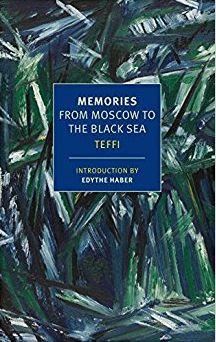
This piece is excerpted from On Call: A Doctor’s Journey in Public Service by Dr. Anthony Fauci, a guest at Amherst College’s LitFest 2025. Register for this exciting, 10th-anniversary celebration of Amherst’s literary legacy and life.

This piece is excerpted from On Call: A Doctor’s Journey in Public Service by Dr. Anthony Fauci, a guest at Amherst College’s LitFest 2025. Register for this exciting, 10th-anniversary celebration of Amherst’s literary legacy and life.
The following is an excerpt from the memoir Thin Places: A Natural History of Healing and Home by Kerri ní Dochartaigh, out now from Milkweed Editions. Click here to learn more.
Even as a child, I could see no way of staying in my hometown. The edges of the broken and breaking city never quite held themselves in place, and my own family life mirrored those fractures. There was just so much loss all around me. Everywhere I turned seemed stabbed right through, constantly punctured by the outside world. The past, present and future all seemed to blend into one, and every single part of the story held sorrow that I couldn’t get rid of, no matter how deep I tried to bury it. So many different things—situations, times of year, people—made the bad things rise up from inside to bite me again. Triggers, I know that now. It left me feeling scared, hollowed out and with no control over any of it, not really knowing how to make it—any of it—stop.
Book by TEFFI (Translated from Russian by ROBERT and ELIZABETH CHANDLER, ANNE MARIE JACKSON, and IRINA STEINBERG)
Reviewed by
 Teffi, nom de plume of Nadezhda Lokhvitskaya, was born in 1872 into a prominent Russian family. Following in the footsteps of her older sister Maria—poet Mirra Lokhvitskaya—Teffi published poetry and prose from the age of 29. She soon rose to fame by practicing a unique brand of self-deprecating humor and topical social satire. In her 1907 hit one-act play The Woman Question, subtitled A Fantasy, Teffi imagined a world in which a women’s revolution against men achieves a full role reversal. Women come to occupy the prominent political, military, academic, professional, and bureaucratic roles, while men are subjugated to the childcare and household management tasks. Though the play’s ending largely dismisses this scenario and trivializes the feminist cause, through humor, the piece makes the point that bad behavior—infidelity, sexual harassment, excessive drinking, pettiness—is a function of social status rather than of biological sex.
Teffi, nom de plume of Nadezhda Lokhvitskaya, was born in 1872 into a prominent Russian family. Following in the footsteps of her older sister Maria—poet Mirra Lokhvitskaya—Teffi published poetry and prose from the age of 29. She soon rose to fame by practicing a unique brand of self-deprecating humor and topical social satire. In her 1907 hit one-act play The Woman Question, subtitled A Fantasy, Teffi imagined a world in which a women’s revolution against men achieves a full role reversal. Women come to occupy the prominent political, military, academic, professional, and bureaucratic roles, while men are subjugated to the childcare and household management tasks. Though the play’s ending largely dismisses this scenario and trivializes the feminist cause, through humor, the piece makes the point that bad behavior—infidelity, sexual harassment, excessive drinking, pettiness—is a function of social status rather than of biological sex.
Book by ANDRE DUBUS III
Reviewed by
Townie is a book about fighting and writing. But it’s mostly about fighting: wanting to fight, learning to fight, training to fight, getting in fights. In the end, it’s about learning not to fight. (I’m not giving much away: a whole lot happens in the middle, and the final scene in which Dubus peels himself away from the urge to fight is lovely and stirring.)
Andre Dubus III spends his boyhood getting beat up a lot. Still scrawny at fourteen, he tells himself:
“I don’t care if you get your face beat in, I don’t care if you get kicked in the head or stabbed or even shot, I will never allow you not to fight back ever again. You hear me?”